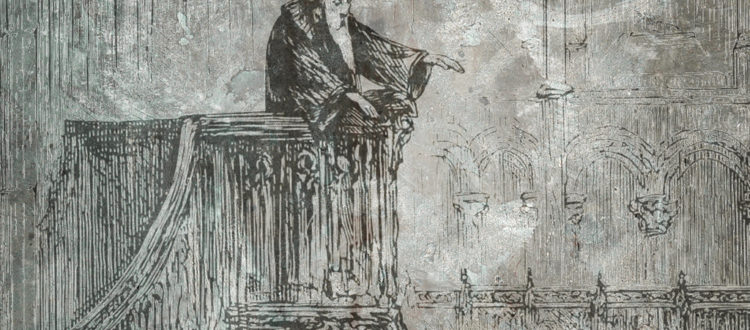How to Best Honor the Reformers
The Reformation was essentially fueled by a reclamation of the expository preaching of God’s word. Martin Bucer, taking a cue from the early church father, Chysostom, had commited himself to expository preaching in Strasbourg. The first noted expositional series at the frontier of the Reformation was Bucer’s exposition of the gospel of Matthew. Bucer would go on to influence a significant number of other Reformers in this regard–not least of which was John Calvin. In Geneva, expository preaching came to its own under Calvin’s pulpit ministry. While many tend to think of Calvin primarily as a theologian, writer, and teacher, T.H.L. Parker has rightly noted that “Calvin regarded himself primarily as a biblical expositor.” He explained,
“By expounding Scripture as a whole he was forced to deal with the Scriptural range of ideas; and, as an honest interpreter, he laboured to represent the thought of the Bible faithfully. He had a horror of those who preached their own ideas in place of the gospel of the Bible:’When we enter the pulpit, it is not so that we may bring our own dreams and fancies with us.'”
We get an insight into Calvin’s conviction about the faithful exposition of Scripture, when, in his commentary on Jeremiah, he noted, “As soon as men depart even in the smallest degree from God’s Word, they cannot preach anything but falsehoods, vanities, imposters, errors, and deceits.”
In 1549, Calvin hired Denis Regunier to transcribe his sermons This proved to be one of the more significant decisions made by the Genevan Reformer. In the preface to one eidition of Calvin’s sermon on Ephesians, we read,
“The Reformer preached without notes and without any written record of what he said; while the natives of Geneva had still to awake to the realization that much was being lost to posterity, a group of French and Waldensian refugees in 1549 took the matter into their own hands and appointed one of their number, Denis Raguenier, to prepare copies of Calvin’s sermons. From that date until his death in 1560, or 1561, Raguenier was employed by the Compagnie des Etranger solely for his work and the Bourse des Pauvres Etrangers paid his salary. His method was to take down the reformer’s words in a primitive form of shorthand, and then assisted by others, to transcribe the sermons into longhand copies. The same procedure succeeded admirably, in Calvin’s estimation, in the case of those who took down his lectures on the Scriptures, and there is not reason to think that Raguenier was not equally successful.”
Because of the publication of Regunier’s transcriptions, we know quite a bit about Calvin’s commtiment to expository preaching. Elsie McKee has categorized Calvin’s various expositional series in the following manner:
“The Chronological sequence of the books of Raguenier’s list, divided into Old Testament and New, is provided in the first appendix. The Biblical sequence for the Old Testament is Genesis, Deuteronomy, Job, Psalms, Isaiah, Jeremiah, Lamentations, Ezekiel, Daniel, Hosea, Joel, Amos, Obadiah, Jonah, Micah, Nahum, Zephaniah; for the New Testament it is the Harmony of the Synoptic Gospels, Acts, 1 and 2 Corinthians, Galatians, Ephesians, 1 and 2 Thessalonians, 1 and 2 Timothy, Titus. The list of preached sermons includes the later part of Joel, Nahum, and the first four chapters of Daniel which were never actually transcribed because Raguenier was ill the weeks when Calvin was treating those texts.”
Calvin’s commitment to preaching the word for the Reformation of the church is seen in the frequency with which He preached during various seasons of ministry:
“Prior to 1549, there were three weekday sermons at five in the evening, and three Sunday services, one at daybreak, another at nine o’clock and the last at three o’clock. After that date the number was increased to one daily sermon, and it was thereafter Calvin’s constant practice, unless hindered by illness or by occasional absence, to preach at nine and three each Sunday, and, alternate weeks, to give one sermon every weekday! Thus he commonly preached no less than ten times a fortnight to the same congregation.”
Calvin’s ministry was not always appreciated by those in Geneva, as is seen in his being expelled from the city in 1539. However, his commitment to the expository preaching of Scripture is highlighted to an even greater degree on account of his expulsion and return. Calvin stopped preaching on Easter Day, 1538 and in September of 1541, stepped back into the pulpit in Geneva where he “went onto the next verse as if it were only the following day.”
The influence of Calvin’s preaching on the Reformation is illustrated by the way in which John Knox had an English translation of Calvin’s sermons on Ephesians sitting on the floor beside his bed when he died. Knox had been in Geneva when Calvin was preaching through Ephesians. Knox would later note the impact that Calvin’s preaching had on him and the work he would do in carrying the Reformation back to Scotland.
Though he had tirelessly spent his life proclaiming the grace of God in the gospel from all Scripture, Calvin never felt as though he had done well enough in his expositions. When he preached his final sermon in January of 1564 he said, “I know that the matter has not been treated as they well deserve. My brethren, however, to whom God has given his grace, will fill up my shortage, for which I ask.”
As we reflect on the preaching ministry of Calvin, and the way in which the Lord used it to fuel Reformation across Europe, we should remember that the Reformation was primarily fueled by a return to the faithful expository preaching of God’s word. We honor the Reformers best not by living in the annals of church history to simply marvel at all that the Lord accomplished through them; we honor them best by following their example in preaching and propagating God’s word in similar ways as they did.



